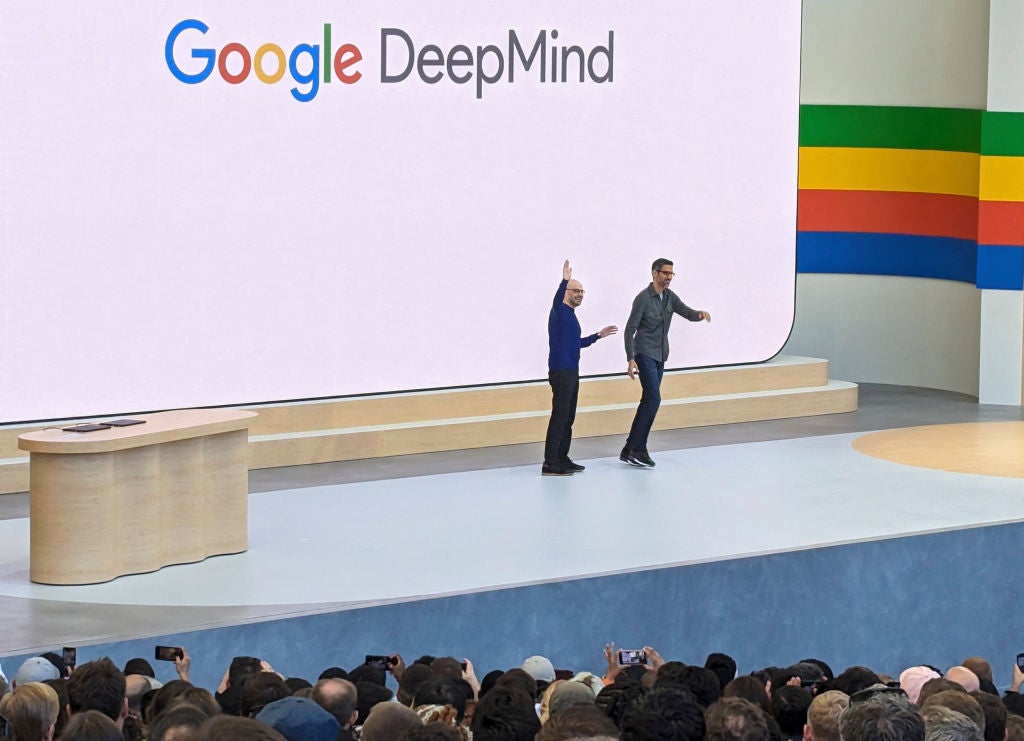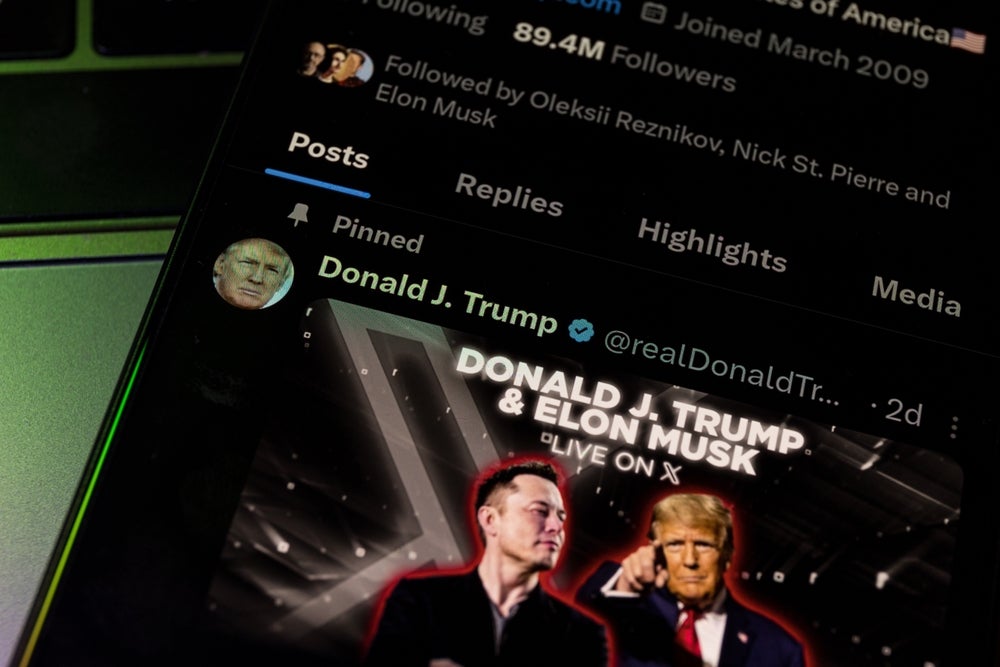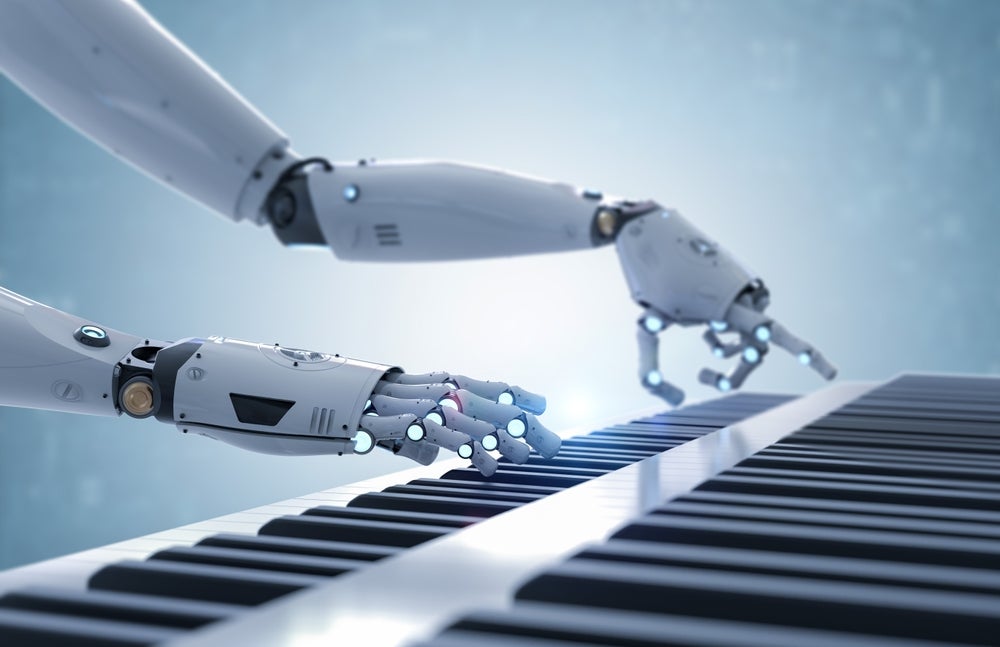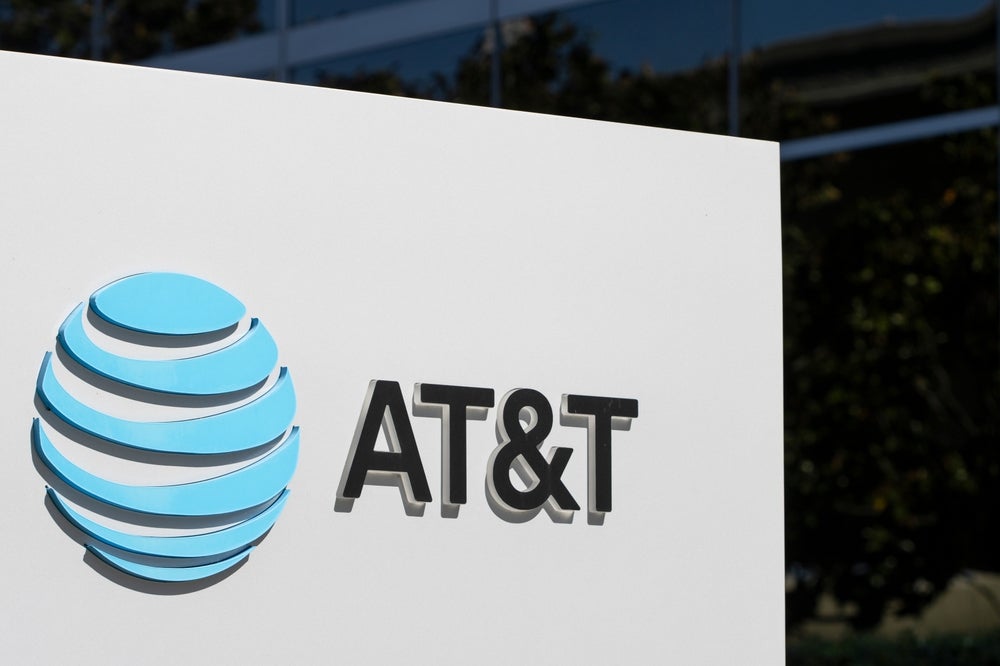
This year’s Google I/O annual developer conference, which began on Tuesday (14 May), saw the company roll out a large range of AI tools and software updates.
The announcements highlighted Google’s determination to stay ahead of the rapidly growing GenAI boom, despite the conference being overshadowed by a strategic release of OpenAI’s GPT-4o one day prior.
The conference’s keynote, which lasted 110 minutes, mentioned AI over 120 times. CEO Sundar Pichai mentioned this at the end of the presentation, a clear message from the boss that he was making AI a strong focus for Google.
In true Google fashion, most of the AI announcements at the conference were still in the testing phase or limited to developers.
However, it is clear that the company is betting its future on succeeding with the technology and wants to go head-to-head with other industry heavyweights.
Laura Petrone, principal analyst at research company GlobalData, told Verdict that the event confirmed Google was in a defensive position, faced with OpenAI’s potential to undermine its business.
How well do you really know your competitors?
Access the most comprehensive Company Profiles on the market, powered by GlobalData. Save hours of research. Gain competitive edge.

Thank you!
Your download email will arrive shortly
Not ready to buy yet? Download a free sample
We are confident about the unique quality of our Company Profiles. However, we want you to make the most beneficial decision for your business, so we offer a free sample that you can download by submitting the below form
By GlobalData“Whether it will succeed and come out ahead in the GenAI race remains an open question,” Petrone said.
The biggest AI announcements from Google I/O
Google’s first major announcement was an AI tool called Ask Photos. This powerful tool allows users to ask Google to find specific things in their camera roll, such as “when did my children learn to swim?”
The second major AI announcement was improvements to Google’s Gemini 1.5 Pro, including more data handling, better translations and the ability to analyse videos and PDFs. According to Pichai, Gemini 1.5 Pro will be able to be used in Gmail, which users can use for help in their day-to-day operations.
The company said Gemini will eventually be fitted into Android phones in place of Google Assistant.
Users will also be able to speak to the model more naturally with Gemini Live, which gives Gemini one of several natural-sounding voices it can respond with.
“You can even speak at your own pace or interrupt mid-response with clarifying questions, just like you would in any conversation,” Google wrote in a blog post.
The third announcement was the company’s new AI agents, although Pichai claimed these were in the “early days”. Google’s AI agents will have the ability to carry out complex tasks for you with AI, Pichai said.
If you want to return some shoes, the AI Agent will be able to trawl your emails, complete a return form, and send someone to pick them up, Pichai explained.
Google also unveiled some creative AI tools, most notably “Veo,” its latest GenAI model for creating high-definition video, and Imagen 3, the latest update to its text-to-image model. Google said the new model will deliver realistic images and have “fewer distracting visual artefacts than our prior models.”
The updates come after Google’s image generator received criticism from users in February, who found that some historical figures were not being generated accurately.
Where is Google in the AI race?
There is no denying that Google went all out at this year’s I/O conference with an impressive vision of an AI-led future. However, OpenAI’s straight-forward release of GPT-4o, which it states can generate audio, visual and image responses, may have put Google on the back foot before the conference even began.
Tadhg McCarthy, chief design officer at digital product design consultancy Elsewhen, told Verdict that OpenAI’s strategic announcement may have affected the company’s position in the race.
“What Google showcased was exciting, but it’s hard to shake their track record of teasing tech that doesn’t see the light of day,” McCarthy said. This was amplified and overshadowed by OpenAI’s strategic release of ChatGPT-4o just a day before. OpenAI’s grounded, low-key tone made for a striking comparison, and consequently, Google’s presentations looked staged.”
In the court of public opinion, McCarthy believes that OpenAI appears to be leading. However, he claimed that this is a “war on two fronts”.
“Convenience for consumers and cloud infrastructure for businesses,” McCarthy said. “Google still holds an undeniably strong position in both.”
“When it comes to AI they’ve pioneered a lot of the technology driving the current wave and continue to impress with the scope of their work beyond the large language model hype, such as the recent AlphaFold 3 breakthroughs from DeepMind,” he added.
Although OpenAI may have been succeeding in its strategic interference of Google, it is possible that the search engine giant is playing the long game through research and development.
“Google’s AI announcements offered a swathe of AI offerings that ordinarily should have blown us away,” said Dr Andrew Rogoyski, director of innovation and partnerships at the Surrey Institute for People-Centred AI.
“Sundar Pichai announced a huge list of AI projects, including Gemini Live, suspiciously similar to OpenAI’s GPT4o announced the previous day,” he added.
Rogoyski told Verdict that Google should, by all rights, be in the lead in AI.
“They’ve done the hard yards, from groundbreaking AIs like AlphaGo, Alphafold and Alphacode, to pioneering the Transformer architecture, the heart of GPTs, back in 2017,” Rogoyski said.
“It’s becoming increasingly apparent that OpenAI are deliberately running interference, in this case, by announcing new services the day before Google’s,” he added. “One can only speculate why this is. Perhaps to sustain the eye-watering investments that OpenAI depend upon?”
Anisha Bahtia, senior analyst at GlobalData, told Verdict that it is too early to comment on who is leading “in the great experiment that is AI”.
“But Google has many consumer touch points that Microsoft and OpenAI lack,” Bhatia said.
According to Bhatia, Google’s ownership over Android could possibly give them an edge in this race. As more users engage with Gemini, it will provide further incentive for developers to develop with Gemini compared to rival LLMs.







